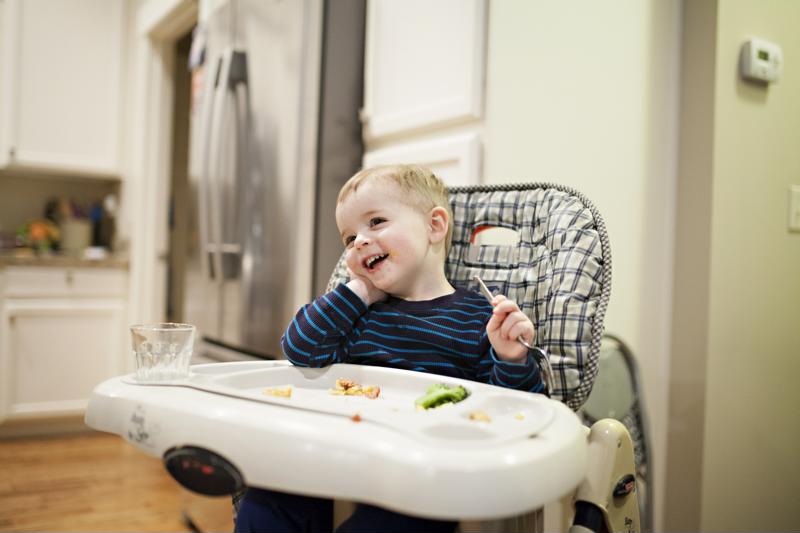Toddler and baby mealtime is about more than food. It’s a chance to bond with your child and instill lifelong healthy eating habits. Unfortunately, hectic schedules and fussy eaters can quickly plunge breakfast, lunch and dinner into chaos. Here are 10 tips for keeping everyone at the table happy and calm:
1. Prep meals in advance
Take a few hours on Sunday to prep and freeze a variety of delicious, nutritious meals to get you through the week. This cuts weekday cooking time down significantly so you don’t have to worry too much about making dinner on nights when you’re particularly stressed. Just make sure to take each meal out of the freezer so it can thaw in time.
2. Keep trying with picky eaters
Keep serving your kid the same dish time after time, even if he or she refuses in the beginning. It often takes more than one experience – or even five – with a new food before we decide we like it.
Your kid will still have preferences, but with this strategy, he or she won’t throw a tantrum when you serve lima beans rather than chicken nuggets.
3. Serve a variety of foods
That said, you still need to give your kid a variety of dishes to develop their palate. A healthy diet is one that includes a wide range of food, not one that relies on the same old standbys. Try meal prepping something new each week.
4. Set expectations
Let your child know what is and isn’t allowed at the dinner table, and be firm. It’ll be frustrating at first, but your kid will soon get the message that eating responsibly means greater freedom.
 Keep meal options interesting but set expectations for behavior.
Keep meal options interesting but set expectations for behavior.5. Try a magnetic high chair
Nothing is more frustrating than finding food splattered all over the floor. Magnetic high chairs help secure trays, bowls and utensils, making it harder for your kid to knock them over.
6. Eat with your child
Mealtime is a social activity, so try to eat with your child as opposed to before or after. Give your kid a few bites, then take a few of your own. This gives your little one time to process what he or she is eating and explore the texture, taste and smell of the food.
7. Be a good example
Kids look to you for cues on what to do and what to avoid. If they see you eating chips and cookies all the time, they’ll grow up thinking it’s OK to snack.
8. Get them involved
Part of developing a healthy food mindset is understanding all the preparation that goes into feeding oneself properly. As soon as they’re big enough, get your kid involved in preparing meals.
9. Notice how you respond to food
A Cornell study revealed babies look at you very closely when it’s time to eat. Your reactions help them determine what’s good to put in their mouths and what could be gross or harmful. If, for example, you make a face when warming up a jar of mashed carrots, your child may pitch a fit.
10. Don’t add undue pressure
Sometimes your meal plans will just collapse. That’s OK, and it’s not a reflection on your abilities as a parent. What’s more, a messy dinner here and there won’t ruin your child for life. Do your best and follow the nine tips above when you can.
